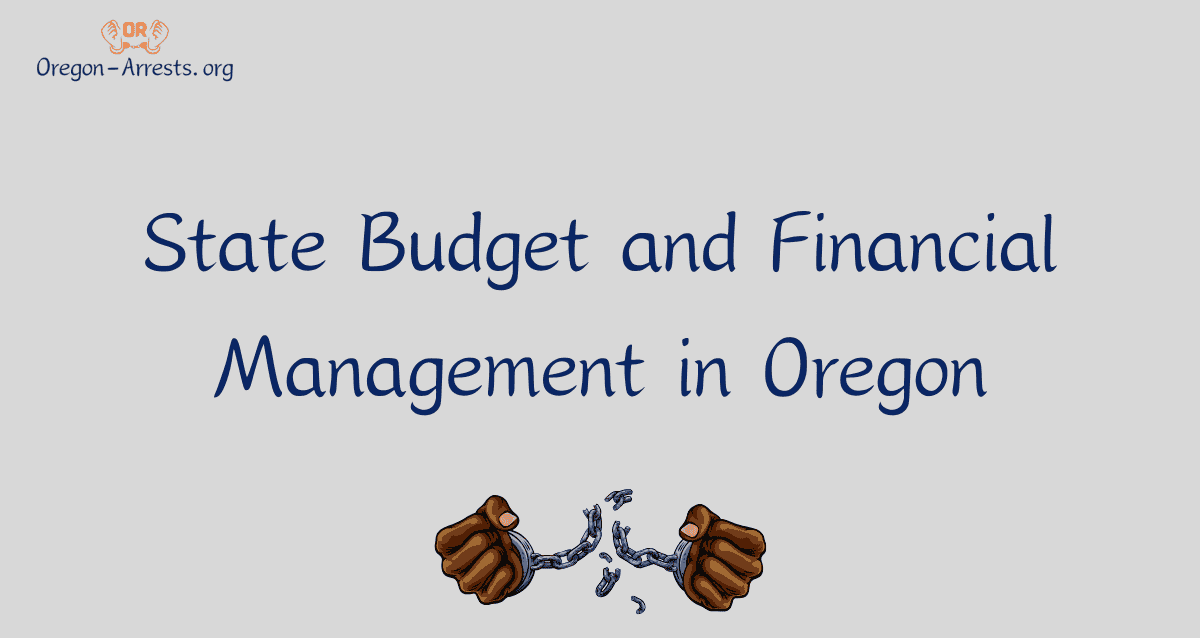State Budget and Financial Management in Oregon
Oregon, known for its stunning landscapes and vibrant communities, also boasts a robust and carefully managed state budget. In this Comprehensive Guide, we will delve into the intricacies of Oregon’s financial management and explore how the state balances its books while ensuring the well-being of its residents.
Oregon’s economy plays a vital role in the Pacific Northwest, contributing significantly to the economic landscape of the United States. The state has implemented a comprehensive approach to budgeting and financial management to maintain its financial stability and provide essential services to its citizens.
Overview of Oregon’s Economy
Before diving into the state budget’s intricacies, let’s take a moment to understand the broader context. Oregon’s economy encompasses diverse industries, including technology, manufacturing, agriculture, and tourism. The state’s economic output has a ripple effect, impacting the entire region.
The Importance of Budgeting
Effective budgeting is the backbone of any well-run state, and Oregon is no exception. A well-structured budget ensures that resources are allocated efficiently, priorities are met, and the populace’s needs are addressed.
The Oregon State Budget
Oregon’s state budget is a complex document outlining how it plans to allocate its financial resources over the fiscal year. It reflects the state’s priorities, values, and commitments to its residents.
Revenue Sources
Oregon’s revenue comes from various sources, including income taxes, sales taxes, and federal funds. Understanding these revenue streams is crucial to comprehending the state’s budgetary process.
Expenditure Categories
The state budget divides expenditures into several categories: education, healthcare, infrastructure, and public safety. Each category plays a crucial role in supporting the well-being of Oregonians.
Budgetary Challenges
Managing a state budget is not without its challenges. Oregon faces issues such as revenue volatility, rising healthcare costs, and the need for infrastructure investment. These challenges require careful planning and resource allocation.
Budgeting Process
The process of creating and approving Oregon’s state budget is a meticulous one. It involves multiple stages, from agency requests to legislative approval, and requires collaboration among various stakeholders.
Fiscal Responsibility Initiatives
Oregon takes its fiscal responsibility seriously, implementing measures to ensure transparency and accountability in financial management. These initiatives build trust and confidence in the state’s budgetary processes.
Impact on Public Services
The state budget directly impacts the quality and availability of public services. It determines funding for schools, healthcare facilities, and essential services that Oregonians rely on daily.
Budget Trends and Projections
Analyzing budget trends and making informed projections are essential for long-term financial planning. We’ll explore recent developments and future projections for Oregon’s state budget.
Success Stories
Oregon has implemented successful financial management initiatives that have positively impacted the state’s finances. These stories highlight the state’s commitment to responsible budgeting.
Lessons for Other States
Oregon’s budgeting practices offer valuable lessons for other states seeking to improve their financial management. We’ll examine key takeaways that can be applied elsewhere.
FAQ’s
What is the state budget of Oregon, and how is it managed?
The state budget of Oregon refers to the financial plan that outlines the allocation of funds for various programs, services, and infrastructure development within the state. It is managed by the Oregon State Legislature and the Governor’s office.
How is the state budget in Oregon funded?
The state budget in Oregon is primarily funded through various sources, including income taxes, sales taxes, property taxes, and federal grants. These funds are collected and pooled together to finance the state’s expenditures.
What are the major components of the state budget in Oregon?
The major components of the state budget in Oregon include education, healthcare, public safety, transportation, social services, and infrastructure development. These sectors receive a significant portion of the budget to ensure the well-being and progress of the state.
How does the state budgeting process work in Oregon?
The state budgeting process in Oregon starts with agencies and departments submitting their budget proposals to the Governor’s office. The Governor then reviews and presents a proposed budget to the Oregon State Legislature. The Legislature holds hearings, makes adjustments, and ultimately approves a final budget for the state.
How is financial management ensured in Oregon’s state budget?
Financial management in Oregon’s state budget is ensured through strict fiscal policies, oversight by the Oregon Department of Administrative Services, and regular audits. These measures aim to maintain transparency, accountability, and efficient use of funds.







